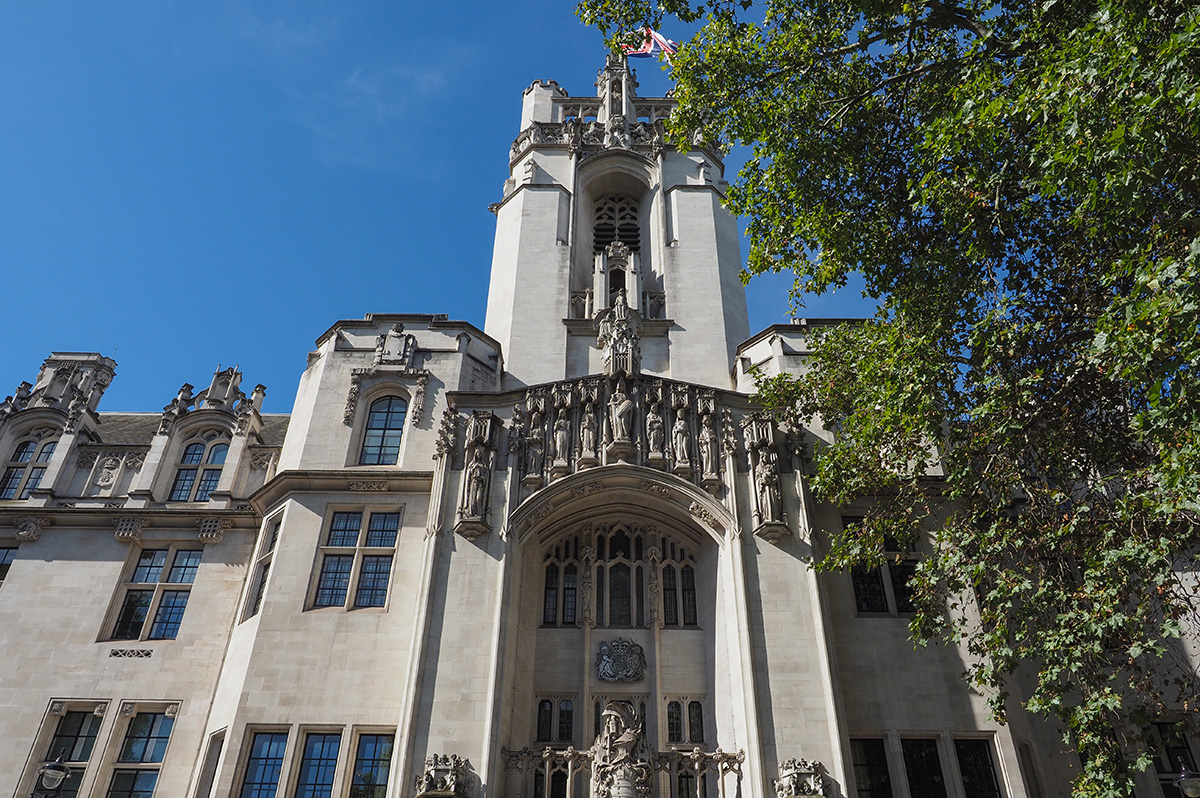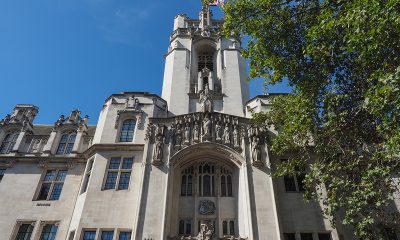News
Macedonian lawmakers approve same-sex marriage ban
Constitutional amendment described as ‘discriminatory and undemocratic’


Bekim Asani, chair of LGBT United Macedonia, a Macedonian LGBT advocacy group, is among the advocates that oppose efforts to amend the country’s constitution to ban same-sex marriage. (Photo courtesy of Bekim Asani)
Amendment XXXIII passed in the former Yugoslav republic’s assembly by a 72-4 margin less than a year after Prime Minister Nikola Gruevski’s government introduced the proposal.
“Marriage shall be a life union solely of one woman and one man,” reads the proposed amendment.
Macedonian law already defines marriage as between a man and a woman.
Amendment XXXIII states the country “requires a clear and precise constitutional definition of marriage as a union solely of one woman and one man.”
“Marriage exclusively defined as the union between one woman and one man is an integral part of human history, a constant and centuries-long tradition in this region,” reads the proposed amendment. “Marriage is one of the fundamental pillars of society. Thus, marriage constitutionally defined exclusively as a union between one woman and one man shall contribute to marriage as an institution being further acknowledged and promoted in our society.”
The LGBT Support Center, an advocacy group based in Skopje, the Macedonian capital, is among the organizations in the former Yugoslav republic to criticize the proposed amendment.
“These constitutional changes are not only completely unnecessary and redundant, but discriminatory and undemocratic to their very core,” said the LGBT Support Center in a statement. “The only real effect would be enhancing the negative social stigma on LGBTI people, further marginalizing this already deeply marginalized community and unnecessarily increasing the burden of everyday life of LGBT people in Macedonia.”
Chris Paliare, president of the Macedonian Canadian Lawyers’ Association, in a letter he wrote to Gruevski last October also argued the proposed amendment is unnecessary.
“Constitutionalizing these provisions has no rational legal justification and can only be justified, if at all, for some political gain, something that should never be part of a government program when human rights issues are at stake,” said Paliare.
Macedonia’s LGBT rights record lags far beyond those of most other European countries.
The former Yugoslav republic decriminalized homosexuality in 1996, but the country’s anti-discrimination laws currently do not include sexual orientation or gender identity and expression. Same-sex couples in Macedonia also lack legal protections.
Anti-LGBT discrimination and violence remain commonplace in the country.
The LGBT Support Center in Skopje has experienced at least six attacks since 2013. Two members of the LGBT Association of Macedonia were injured last October when a group of masked men attacked a coffee shop in the country’s capital where they had gathered to celebrate the group’s second anniversary.
Bekim Asani, chair of LGBT United Tetovo Macedonia in the city of Tetovo, told the Washington Blade before lawmakers approved the marriage amendment that he faces discrimination and threats on a daily basis.
“I can’t be who I am,” he said. “It is the same for every other openly LGBT person (in Macedonia.)”
Tanya Domi, an adjunct professor of international and public affairs at Columbia University who is currently writing a book on the LGBT rights movements in several Balkan countries, told the Blade that many Macedonian advocates have been attacked and “forced to seek emergency health care.” She noted many of them have also been evicted from their homes.
“It is a deeply hostile environment for LGBT persons,” said Domi.
Asani told the Blade he feels the proposed amendment will only worsen the situation for LGBT Macedonians.
“Macedonia is democratic country it should be free but when it comes to LGBT in reality it is not like that,” he said. “With the constitutional changes, a bad situation for LGBT people will get even worse.”
Same-sex marriage is legal in Portugal, Spain, France, England, Wales, Scotland, Iceland, Norway, Sweden, Denmark, the Netherlands, Belgium and Luxembourg.
Irish voters in May are scheduled to vote on a referendum that would extend marriage rights to same-sex couples.
Finnish lawmakers in November approved a measure that would allow gays and lesbians to tie the knot in the Scandinavian country. Parliamentarians in Estonia and Malta within the last year have extended civil unions to same-sex couples.
Slovak lawmakers in June 2014 overwhelmingly approved an amendment to their country’s constitution that defines marriage as between a man and a woman.
Croatia, Hungary and Latvia also define marriage as between a man and a woman in their respective countries’ constitutions.
U.S. Military/Pentagon
Pentagon urged to reverse Naval Academy book ban
Hundreds of titles discussing race, gender, and sexuality pulled from library shelves

Lambda Legal and the Legal Defense Fund issued a letter on Tuesday urging U.S. Defense Secretary Pete Hegseth to reverse course on a policy that led to the removal of 381 books from the Nimitz Library of the U.S. Naval Academy in Annapolis, Md.
Pursuant to President Donald Trump’s executive order 14190, “Ending Radical Indoctrination in K-12 Schooling,” the institution screened 900 titles to identify works promoting “diversity, equity, and inclusion,” removing those that concerned or touched upon “topics pertaining to the experiences of people of color, especially Black people, and/or LGBTQ people,” according to a press release from the civil rights organizations.
These included “I Know Why the Caged Bird Sings” by Maya Angelou, “Stone Fruit” by Lee Lai, “The Hate U Give” by Angie Thomas, “Lies My Teacher Told Me: Everything Your American History Textbook Got Wrong” by James W. Loewen, “Gender Queer: A Memoir” by Maia Kobabe, and “Democracy in Black: How Race Still Enslaves the American Soul” by Eddie S. Glaude, Jr.
The groups further noted that “the collection retained other books with messages and themes that privilege certain races and religions over others, including ‘The Clansman: A Historical Romance of the Ku Klux Klan’ by Thomas Dixon, Jr., ‘Mein Kampf’ by Adolf Hitler, and ‘Heart of Darkness’ by Joseph Conrad.
In their letter, Lambda Legal and LDF argued the books must be returned to circulation to preserve the “constitutional rights” of cadets at the institution, warning of the “danger” that comes with “censoring materials based on viewpoints disfavored by the current administration.”
“Such censorship is especially dangerous in an educational setting, where critical inquiry, intellectual diversity, and exposure to a wide array of perspectives are necessary to educate future citizen-leaders,” Lambda Legal Chief Legal Officer Jennifer C. Pizer and LDF Director of Strategic Initiatives Jin Hee Lee said in the press release.
Federal Government
White House sues Maine for refusing to comply with trans athlete ban
Lawsuit follows months-long conflict over school sports in state

The Justice Department is suing the state of Maine for refusing to comply with President Donald Trump’s executive order banning transgender athletes from participating in school sports, U.S. Attorney General Pam Bondi announced on Wednesday.
DOJ’s lawsuit accuses the state of violating Title IX rules barring sex discrimination, arguing that girls and women are disadvantaged in sports and deprived of opportunities like scholarships when they must compete against natal males, an interpretation of the statute that reverses course from how the law was enforced under the Biden-Harris administration.
“We tried to get Maine to comply” before filing the complaint, Bondi said during a news conference. She added the department is asking the court to “have the titles return to the young women who rightfully won these sports” and may also retroactively pull federal funding to the state for refusing to comply with the ban in the past.
Earlier this year, the attorney general sent letters to Maine, California, and Minnesota warning the blue states that the department “does not tolerate state officials who ignore federal law.”
According to the Maine Principals’ Association, only two trans high school-aged girls are competing statewide this year. Conclusions from research on the athletic performance of trans athletes vis-a-vis their cisgender counterparts have been mixed.
Trump critics and LGBTQ advocates maintain that efforts to enforce the ban can facilitate invasive gender policing to settle questions about an individual athlete’s birth sex, which puts all girls and women at risk. Others believe determinations about eligibility should be made not by the federal government but by school districts, states, and athletics associations.
Bondi’s announcement marked the latest escalation of a months-long feud between Trump and Maine, which began in February when the state’s Democratic governor, Janet Mills, declined to say she would enforce the ban.
Also on Wednesday, U.S. Education Secretary Linda McMahon said the findings from her department’s Title IX investigation into Maine schools — which, likewise, concerned their inclusion of trans student-athletes in competitive sports — was referred to DOJ.
Earlier this month, the Justice Department pulled $1.5 million in grants for Maine’s Department of Corrections because a trans woman was placed in a women’s correctional facility in violation of a different anti-trans executive order, while the U.S. Department of Agriculture paused the disbursement of funds supporting education programs in the state over its failure to comply with Title IX rules.
A federal court last week ordered USDA to unfreeze the money in a ruling that prohibits the agency from “terminating, freezing, or otherwise interfering with the state’s access to federal funds based on alleged Title IX violations without following the process required by federal statute.”
United Kingdom
UK Supreme Court rules legal definition of woman limited to ‘biological women’
Advocacy groups say decision is serious setback for transgender rights

The British Supreme Court on Wednesday ruled the legal definition of a woman is limited to “biological women” and does not include transgender women.
The Equality Act that bans discrimination based on sexual orientation and gender identity took effect in 2010.
Scottish MPs in 2018 passed a bill that sought to increase the number of women on government boards. The Supreme Court ruling notes For Women Scotland — a “feminist voluntary organization which campaigns to strengthen women’s rights and children’s rights in Scotland” — challenged the Scottish government’s decision to include trans women with a Gender Recognition Certificate in its definition of women when it implemented the quota.
Stonewall U.K., a British advocacy group, notes a Gender Recognition Certificate is “a document that allows some trans men and trans women to have the right gender on their birth certificate.”
“We conclude that the guidance issued by the Scottish government is incorrect,” reads the Supreme Court ruling. “A person with a GRC (Gender Recognition Certificate) in the female gender does not come within the definition of ‘woman’ for the purposes of sex discrimination in section 11 of the EA (Equality Act) 2010. That in turn means that the definition of ‘woman’ in section 2 of the 2018 Act, which Scottish ministers accept must bear the same meaning as the term ‘woman’ in section 11 and section 212 of the EA 2010, is limited to biological women and does not include trans women with a GRC.”
The 88-page ruling says trans people “are protected by the indirect discrimination provisions” of the Equality Act, regardless of whether they have a Gender Recognition Certificate.
“Transgender people are also protected from indirect discrimination where they are put at a particular disadvantage which they share with members of their biological sex,” it adds.
Susan Smith, co-founder of For Women Scotland, praised the decision.
“Today the judges have said what we always believed to be the case, that women are protected by their biological sex,” she said, according to the BBC. “Sex is real and women can now feel safe that services and spaces designated for women are for women and we are enormously grateful to the Supreme Court for this ruling.”
Author J.K. Rowling on X said it “took three extraordinary, tenacious Scottish women with an army behind them to get this case heard by the Supreme Court.”
“In winning, they’ve protected the rights of women and girls across the UK,” she added.
It took three extraordinary, tenacious Scottish women with an army behind them to get this case heard by the Supreme Court and, in winning, they’ve protected the rights of women and girls across the UK. @ForWomenScot, I’m so proud to know you 🏴💜🏴💚🏴🤍🏴 https://t.co/JEvcScVVGS
— J.K. Rowling (@jk_rowling) April 16, 2025
Advocacy groups in Scotland and across the U.K. said the ruling is a serious setback for trans rights.
“We are really shocked by today’s Supreme Court decision — which reverses 20 years of understanding on how the law recognizes trans men and women with Gender Recognition Certificates,” said Scottish Trans and the Equality Network in a statement posted to Instagram. “The judgment seems to have totally missed what matters to trans people — that we are able to live our lives, and be recognized, in line with who we truly are.”
Consortium, a network of more than 700 LGBTQ and intersex rights groups from across the U.K., in their own statement said it is “deeply concerned at the widespread, harmful implications of today’s Supreme Court ruling.”
“As LGBT+ organizations across the country, we stand in solidarity with trans, intersex and nonbinary folk as we navigate from here,” said Consortium.
The Supreme Court said its decision can be appealed.
-

 District of Columbia2 days ago
District of Columbia2 days agoReenactment of 1965 gay rights protest at White House set for April 17
-

 Hungary2 days ago
Hungary2 days agoHungarian MPs amend constitution to ban public LGBTQ events
-

 Maryland2 days ago
Maryland2 days agoFreeState Justice: Transgender activist ‘hijacked’ Moore’s Transgender Day of Visibility event
-

 Real Estate3 days ago
Real Estate3 days agoNavigating DMV real estate market during political unrest











